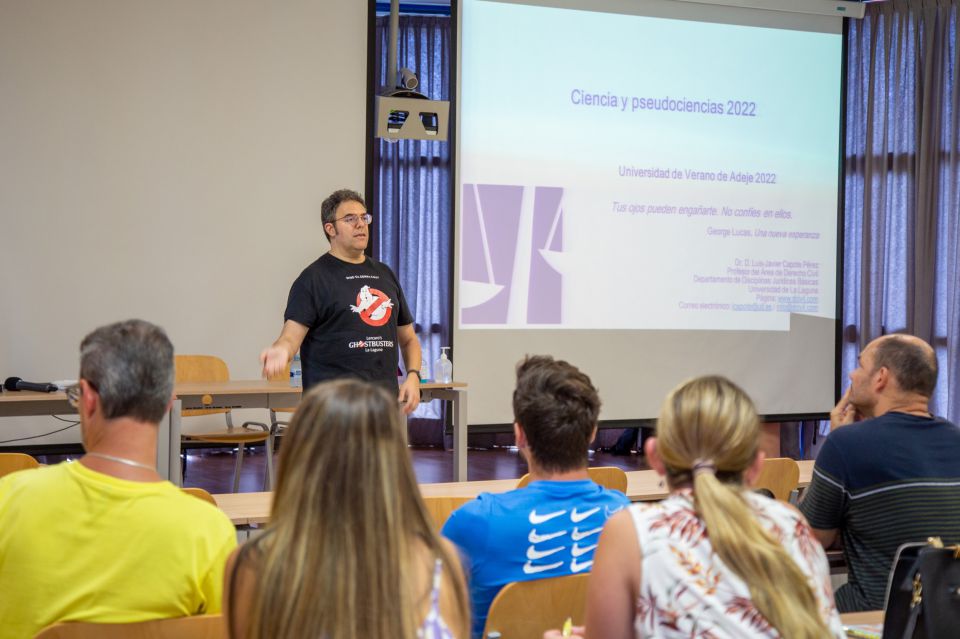Wednesday’s Adeje Summer University offered a range of different perspectives
20 july 2022
Among the courses on offer today in the Adeje Summer University was a class on mindfulness and positive psychology, under the tutelage of Professor MaríaTeresa Miró Barrachina, looking at the quality of the consciousness with which we live, “something we have been practising and working on for thousands of years”. She told students that we, as humans, have been aware of ‘mindfulness’ for many many centuries, that it isn’t a modern concept but part of our inherited humanity, and while it might have become a commercial concept, in essence it isn’t. “All the wisdom-based practices of our past include some form of attention to ourselves, discovering ideals of virtue, wisdom, wellness, improvement, etc.”
How cognitive distortions can affect our evaluation of human errors and actions in our daily lives is another of the themes under the summer university microscope today, with Professor Christian Robert Rosales Sánchez. He told students that our biases are unconscious processes that we carry out during social interactions, some innate, some not. Some can be defined as stereotypes, prejudices, often sociocultural, but all will affect our behaviour in a given social setting. These cognitive distortions are not inherently ‘bad’ and have been part of the evolution of humans, but we need to be aware of how to manage them, and the professor invited the students to walk them back and examine how they are occurring and evaluate them.
Professors Luis Javier Capote Pérez and Carlos Javier Álvarez González oversaw the workshop on science and pseudoscience, using a series of games to demonstrate how perceptions can lead people to modify their objective vision of reality. We can be fooled by our own perceptions, they detailed, up to the point where we no longer believe in them. So, it is important to make sure that decisions made are based on critical thinking.
During the workshop participants looked at a range of examples, from scientific methodology to miracle products. The advice was to “always look at things from another perspective, separate opinion from information”, and find a balance between approaching something without prejudice but keeping critical faculties intact and working.
